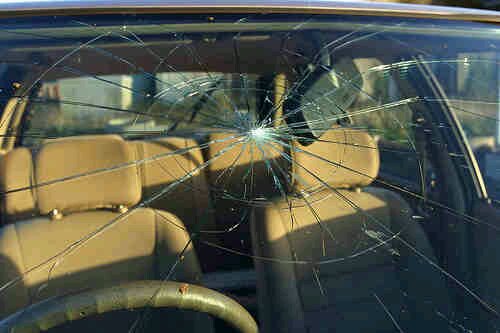STILL COOK COUNTY, ILLINOIS-So we’re figuring out why it is improper, unethical and unconstitutional to be required to hold a petition to rescind statutory summary DUI supension hearing simultaneously with a DUI trial. This is part 2 of a series:
RULES OF EVIDENCE.II. A PETITION TO RESCIND STATUTORY SUMMARY SUSPENSION (PTRSS) IS TECHNICALLY A CIVIL PROCEEDING. That’s right, you heard correctly, the Secretary of State has such a compelling interest in keeping “unsafe drivers” off of the road that they require an automatic suspension for anyone arrested for DUI, regardless of the circumstances. Instead of ever making this a part of the Secretary of State, the legislature decided that the circuit courts, who were responsible for the criminal aspects of DUI trials, would be the best venue for these hearings. Only problem was, the rules of evidence for criminal trials don’t apply in civil court and specifically, in the civil-criminal world of PTRSS hearings.
Judges routinely let in evidence for PTRSS hearings that would never ever ever ever be allowed to be told to a jury. And they let this evidence in as fact. It is rare that a Judge will say that he or she did not find the officer credible enough on a PTRSS. Officers can testify as to what other officers said, what other officers told them they heard said, what other officers could see, and to any hearsay statements which were made – even if they do not fall into any exception to the hearsay rule and are clearly hearsay (or double or triple hearsay). They can testify about the breathalyzer results without actually having performed the test. Most unnervingly, officers who were on scene and even the arresting officer often are not the officers who write the arrest reports and process the paperwork (the paper car, in cop lingo). So as defense attorneys, we can be looking at a police report filled out by one cop who isn’t there, with field sobriety tests performed by another cop but listed as fact in the reports and observations of the Defendant, which are critical to making a factual determination, non-existent observations or observations made by other officers.IN CRIMINAL CASES, THE RULES OF EVIDENCE ARE STRICTER THAN IN A PTRSS SINCE THEY TAKE INTO ACCOUNT THE CONSTITUTIONAL RIGHTS OF THE DEFENDANT. THIS MAINLY APPLIES TO 4TH AMENDMENT SEARCHES/SEIZURES, 5TH AMENDMENT RIGHT AGAINST SELF-INCRIMINATION, AND 6TH AMENDMENT RIGHT TO A FAIR TRIAL.
So while a Defendant at a PTRSS hearing can be ordered to respond to a cross-examination question such as, “How many drinks did you have before driving that night?” there are no safeguards against 5th Amendment rights against self-incrimination. In a PTRSS, Defense attorneys want their clients to be honest and appear credible. For some people, that is impossible to accomplish, and I accept that. However most people can testify credibly if they know not to lie and especially not to contradict themselves where it counts. This comes with witness prep and practice, 2 things I won’t cover right now. No motions can be filed alleging that an illegal search or seizure occurred (as motions to suppress illegally obtained evidence are almost never heard along with PTRSS hearings, even though the process is virtually identical). So out the window goes the 4th Amendment. Keep in mind, as these protections are going away, evidence is being introduced – either by testimony of witnesses or unofficial testimony by the State as they argue objections and other issues.And yes, there technically is one ground on which you can challenge a suspension based on lack of probable cause, but it only needs to be more likely than not that something happened for the court to consider the truth. Very few judges will go so far as to say an officer is lying or being evasive in a PTRSS hearing. They know that their rulings won’t be appealed and that motions to reconsider are a waste of everyone’s time.
Now let’s touch on the fair trial situation knowing these rules of evidence and Constitutional safeguards. Let’s hypothetically say that you decide you trust the judge enough to do a bench trial at the same time as a PTRSS. That judge must now not only judge the PTRSS based on the lax evidentiary and proof standards required, but she must also judge the facts of the criminal case to ensure that the Defendant is proven guilty beyond a reasonable doubt. Think about this from a practical standpoint and you’re in a nighmare scenario – A lot of hearsay and admissions just got into the judge’s head from the Defendant testifying as well as the officer being basically able to explain the entire version of events as others saw it. This may be new to a few people, but bear with me. This is the “Toothpaste tube effect” as I call it. You know how you squeeze toothpaste out of a tube, but it’s impossible to get it back in the tube because it is already out. The toothpaste, as you guessed, is the evidence that a jury or even judge would never ever ever ever see, like the fact that the Defendant had a previous DUI 2 years ago that he got supervision for. So we put on our Judge’s hats and apply some basic psychology. You can tell a jury to disregard something that was said all you want. But you know damn sure that not only will they remember what was said, the will have more questions and afford more credibility to that statement or testimony because it looks like it’s covering up a secret.
So we get into the cliche’s like “Judges are people too!” To that, I say no! Judges are people, obviously, but they are not regular people like you or I. They hold a trusted position in society, and are responsible for not only how the youth are treated and how they grow up in a bad system, but also to try to make independent, fair and supposedly unbiased decisions. According to the IL Supreme Court rules on judicial ethics, judges must not only avoid impropriety, but “the appearance of impropriety.” So these judges try to rationalize that they will be able to separate out the two when it comes time to make a decision and render a verdict that will profoundly change someone’s life. When a Defendant is acquitted on what the media deems a “techinicality” (sorry for all the quotation marks), he is really acquitted on Constitutional grounds. And last time I checked, the Constitution was not a mere technicality. Every Defendant has rights, specifically the 4th, 5th, 6th, 8th and 14th Amendment rights. If those are violated, convicting him, regardless of how much you think he actually committed the act, is wrong and unconstitutional.
Judicial efficiency and basic laziness are not compelling interests enough to trump the right to a fair trial with all of the protections which are designed to be afforded to every Defendant. Once the information is brought out in the PTRSS, the Judge will have essentially made up her mind on the guilt or innocence of the Defendant. Last time I checked, if a judge has made up her mind about the guilt or innocence of a Defendant before all of the evidence and testimony is completed, the presumption of innocence has been thrown out the window. I may even suggest a substitution of judge for cause, but the chances of that succeeding are slim. As elected officials, Judges need to be viewed as tough on crime, lest they not be re-elected or get the support and, more importantly, money from donors. Are judges fair and impartial? Some are, but most aren’t. In my experience and in talking to other attorneys, there are certain judges who you can never try a case in front of. Judges who would most likely vomit if they tried to say the words “not guilty.” Fortunately, because of the history of corruption in Cook County and the constant shuffling of judges, the judge you have on one court date is often not the judge you have on the next court date. So the judge who required you to set a PTRSS and bench trial at the same time may not even be the judge hearing the case.
In a system where trials, and ultimately the freedom of the accused, are won and lost not on the merits of the case or the evidence, but on the political and legal leanings of the judge, something is clearly wrong. To them, criminal defendants are not people. To them, especially the ones who rose in the ranks as prosecutors, criminal defendants are just another number. Just another case completed. Just another guilty verdict to report to their overlords. Hence, when conflicts would cause a reasonable and honest person to follow the rules and set a PTRSS separately from a trial, the honest course of action is not followed. The rules of evidence and burdens of proof are not up for debate. If we allow these types of deliberate miscarriages of justice, we destroy the system that we created. All defendants are presumed innocent of all charges throughout the entirety of their hearings and trial until the end, where the fact finder (judge or jury) finds them guilty beyond a reasonable doubt or not guilty. This is a hallmark of our judicial system that I cannot allow to fall by the wayside. I know that in many cases, there is simply nothing that I can do. But when I can prevent judicial misconduct and a judge getting in the way of my client’s right to a fair trial, you can bet I will be right there, case law in hand, trying to convince someone who doesn’t care that they are bastardizing the system of law.
So, no PTRSS and trial simultaneously this time because the rules of evidence are so vastly different in the two parts of the case that even having the same judge rule on them should be outlawed. There is a reason we separate criminal court from all of the rest of the law. Lives and freedom are on the line, and the protections need to be strong and need to be followed. Period.
-JSG



